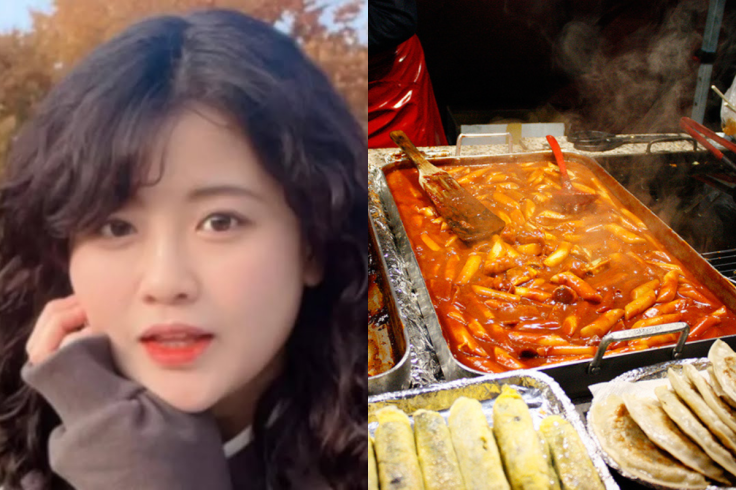Baek Se-hee's Memoir Turned Comfort Food Into a Cry for Help: Can Tteokbokki Save a Life?
How one dish became a symbol of survival, softness, and emotional truth.

How can a person want to die and, in the same breath, crave a warm plate of spicy rice cakes? This was the paradox at the heart of Baek Se-hee's bestselling memoir, I Want to Die but I Want to Eat Tteokbokki. The South Korean author's recent passing at age 35 has reignited global interest in the profound emotional weight behind her words, and the quiet power of a simple dish as a metaphor for survival.
How a Humble Street Food Became a Symbol of Survival
Tteokbokki (떡볶이), a beloved spicy Korean rice cake dish, is most often associated with comfort, warm nostalgia, and casual indulgence. But in Baek Se-hee's memoir, it became something more: a powerful symbol of emotional grounding in the midst of deep despair.
According to The Times of India, Baek's use of tteokbokki masterfully reframed the dish as a literary device. It came to represent the small, tangible joys that stubbornly coexist with persistent mental anguish.
Her book, structured around her therapy sessions, did not offer dramatic breakthroughs or tidy resolutions. Instead, it chronicled the quiet, everyday persistence of someone simply trying to stay afloat. Tteokbokki, in this context, wasn't just food—it was a lifeline.
The Quiet Honesty That Resonated with a Generation
Published in South Korea in 2018, Baek's memoir resonated deeply with a generation that felt unseen by traditional mental health narratives. Her writing was radical in its unfiltered simplicity: no grand declarations, just honest conversations with her psychiatrist and candid reflections on the struggles of daily life.
The title itself—I Want to Die but I Want to Eat Tteokbokki—perfectly captured the bewildering duality of depression: the overwhelming desire to disappear, and the simultaneous, simple craving for something warm, familiar, and alive. It gave readers permission to hold both of those conflicting truths at once.
Did Her Words Break Through South Korea's Cultural Silence?
Baek's death has sparked renewed conversations about mental health in South Korea, where stigma remains a significant barrier to care. Despite a growing awareness of the issue, many still struggle to access support or speak openly about their experiences for fear of judgement.
Her memoir helped to break that silence, offering accessible language for complex emotions that often go unnamed. This raw vulnerability provided comfort and solidarity to countless readers who felt they were struggling alone.
Yet her passing also raises difficult questions: was the world listening closely enough? Did her words prompt real, lasting change—or just a fleeting moment of temporary empathy?
Why a Symbol of Survival Is Never Enough
Tteokbokki became a cherished symbol of survival for her readers, but symbols alone cannot save lives. Baek's work is a stark reminder that emotional resonance must be matched by structural support: accessible therapy, robust community care, and cultural shifts that truly validate vulnerability.
Her organ donation, confirmed by local reports, was a final, selfless act of generosity. The grief surrounding her death, however, suggests that many readers saw her not just as a writer, but as a mirror for their own struggles. And now, that mirror has shattered.
Damn. This hits even harder after learning she died yesterday 🥲 RIP Baek Se-hee 😔💖🪽 pic.twitter.com/WXGAEPvIRw
— 𝔐𝔦𝔠𝔥𝔶 🩵👻 (@Michell97477395) October 17, 2025
The Unfinished Conversation She Left Behind
Baek Se-hee's legacy is not just her book—it is the conversations it started, the comfort it offered, and the challenge it posed to a society still learning how to care for its own.
Tteokbokki may not save a life on its own, but the emotions it represents—softness, warmth, persistence—might. In the end, Baek didn't ask us to fix her. She asked us to feel with her. And that, perhaps, is where healing truly begins.
© Copyright IBTimes 2025. All rights reserved.





















